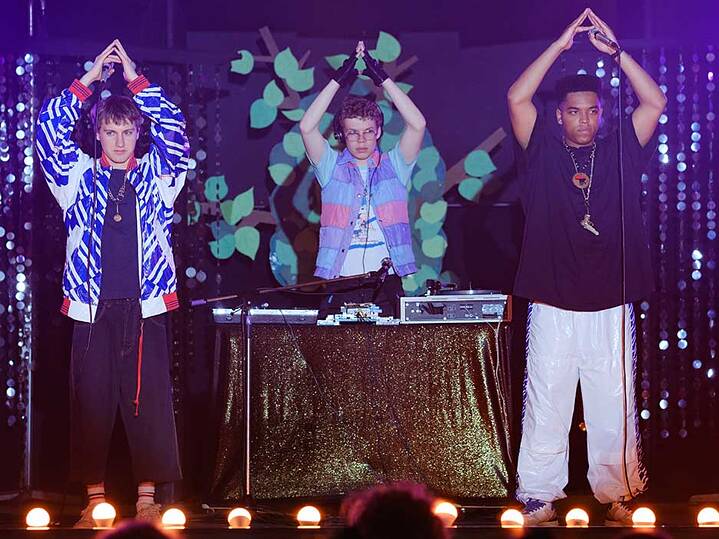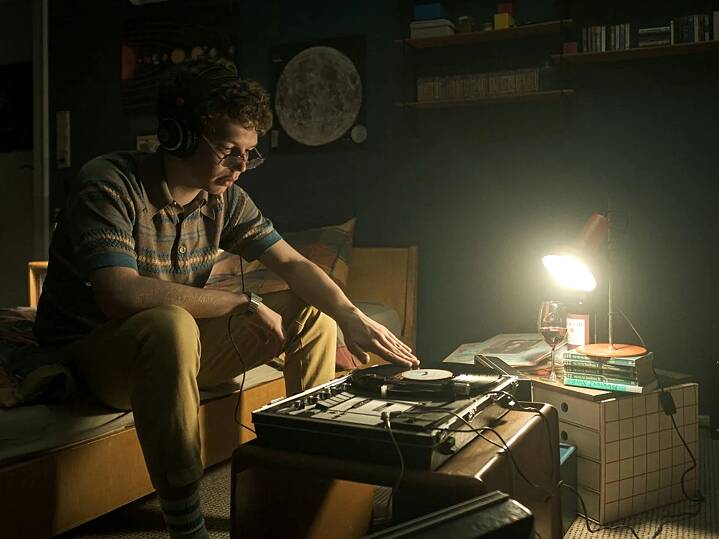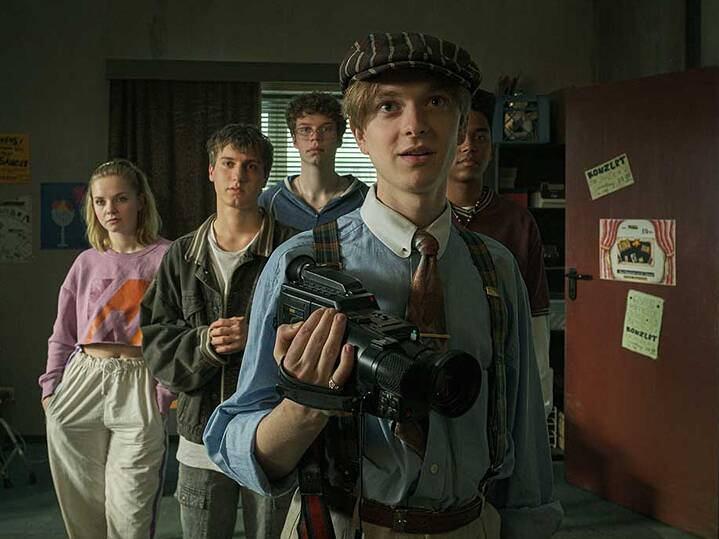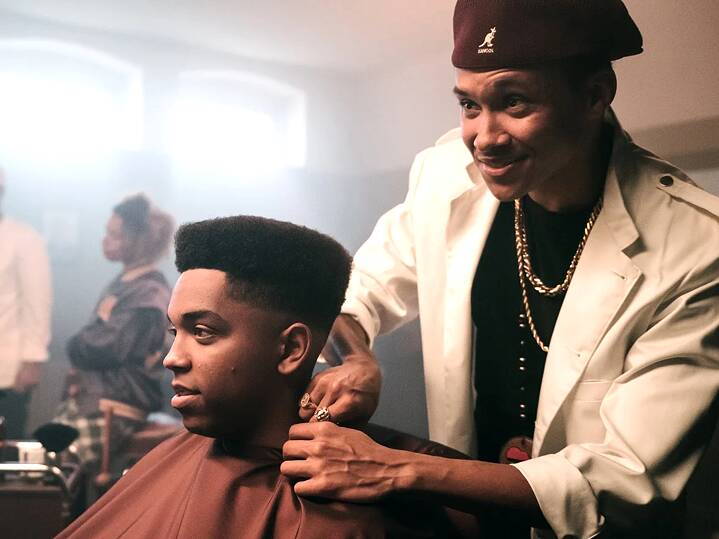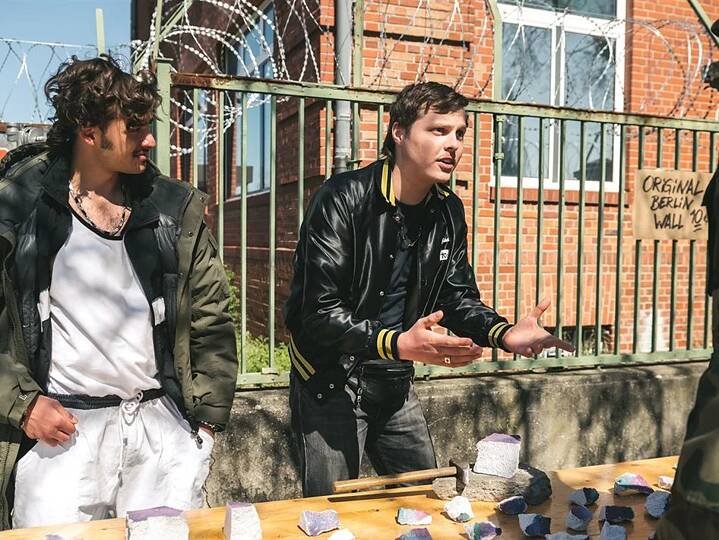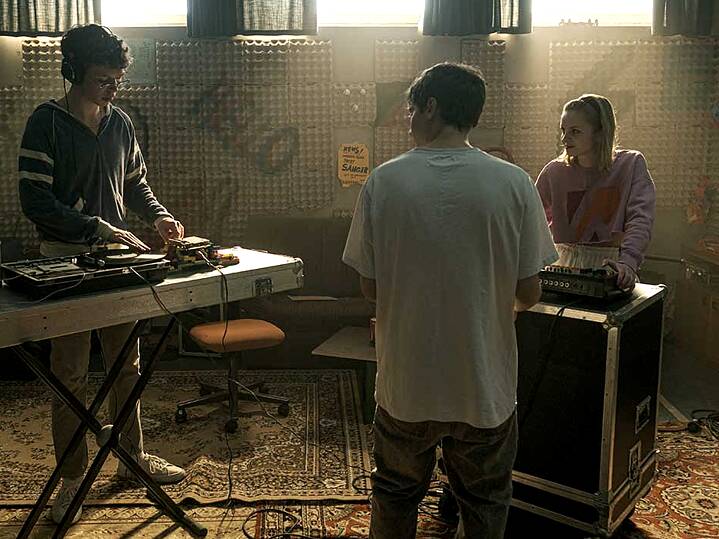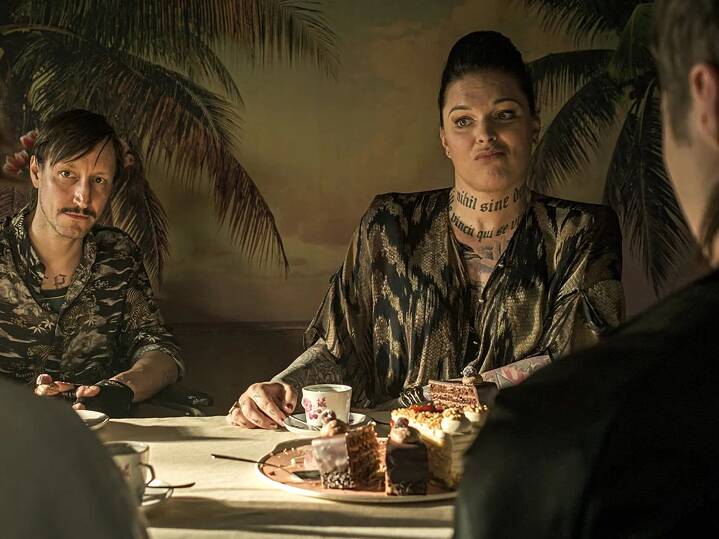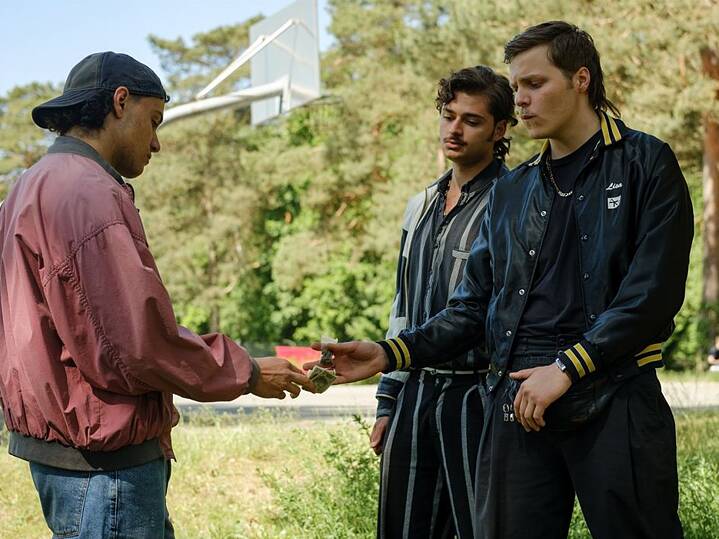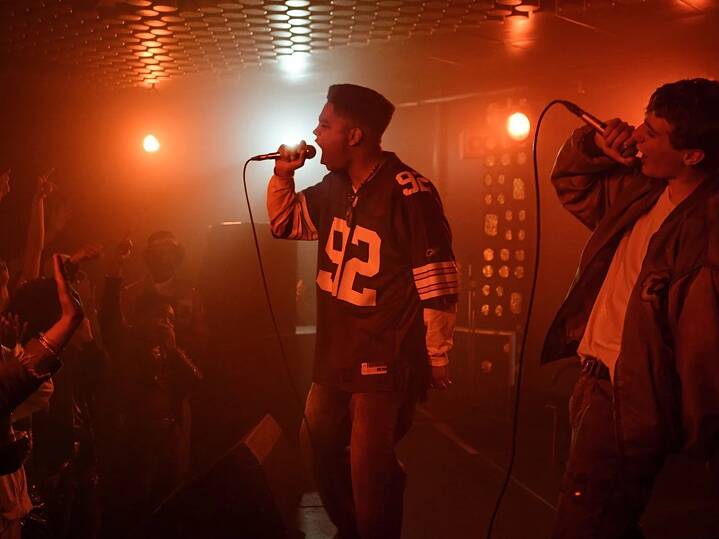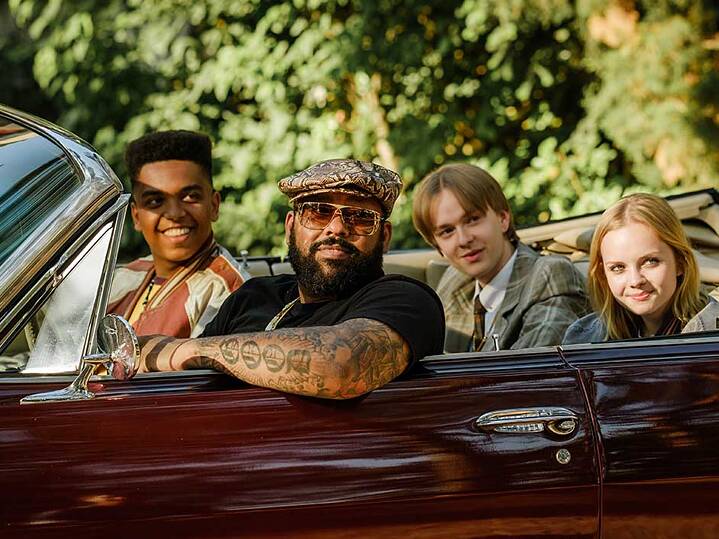German Series in the USA
Almost Fly
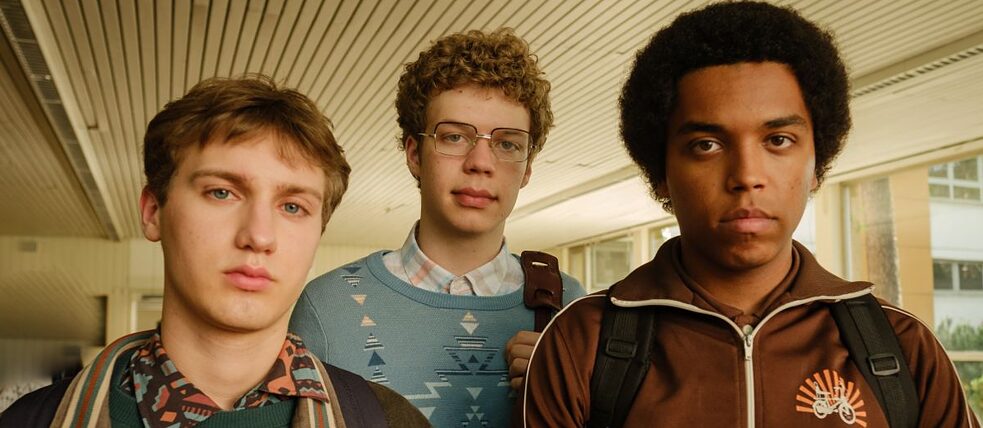
Spring 1990: In a sleepy corner of the country still known as West Germany, two high school kids are struck by American hip-hop as if by lightning. They resolve to start rapping themselves, to the dismay of everyone around them. Welcome to Almost Fly, a coming-of-age comedy that sneaked on to Prime Video in the U.S. this year after debuting on Warner TV and HBO Max in Germany. Whereas many streaming series attain the status of ‘binge-worthy’ through bloodcurdling suspense, this least heralded of shows keeps you watching with a different quality: a guileless charm.
By Mark Tompkins
IT TAKES TWO TO MAKE A THING GO RIGHT
In time-honored teen-comedy fashion, the leads of Almost Fly are marked by a thousand signifiers of nerdiness when we first meet them. Walt (Samuel Benito) is too tongue-tied to talk to girls and sentenced to working at his parents’ gas station after school. His best friend and fellow high school outcast Ben (Andrew Porfitz) is the offspring of an ill-starred relationship between a young German woman and a Black American musician who apparently doesn’t even acknowledge his existence. Everything changes for these two when they encounter a broadcast of Yo! MTV Raps, which for them is like a transmission from another planet.From there they sneak onto a nearby U.S. military base one night to catch rappers from the Bronx performing for a largely Black crowd of American G.I.s. For Ben, hip-hop presents a way to (re)claim his Black identity. When he returns to the base to get a hi-top fade haircut like his new hero Kool Moe Dee, rarely has a new hairstyle taken on so much dramatic significance. Meanwhile hip-hop speaks to Walt as something cool, both urban and international, which allows him to dream of a life beyond his dreary provincial town, as epitomized by not only his parents’ gas station but by his older brother Helli (Julius Nitschkoff), a metalhead and a bully. (It’s an amusing touch that as Helli, Nitschkoff is styled to bear a distinct resemblance to Axl Rose.)
WE ARE NOT FUNKY HERE
Walt and Ben embark on a mission to track down import hip-hop LPs, no easy task in their hometown of Eichfeld, which redefines boondocks. As one uncomprehending local record-store owner tells them, with comically didactic certainty, “We are not funky here.”The show makes hay with the cultural miscommunication that defines Ben and Walt’s search, as with a joke about the difference between German Funk (FOO-nk) i.e., radio, and “funk” (FUH-nk) as any R&B fan understands the term. When they sign up for the school talent show, Ben says “Wir rappen,” proudly claiming the English verb for German. But the kid organizing the show has no idea what he means, and puts Ben and Walt down as a Sprechgesang act.
Ben and Walt’s attempts to become a rap act known as Atomic Trinity are mocked, first by two preppy older kids who have their own boy-band duo, and who are living embodiments of everything awful about the 1980s. And a slightly more clued-in classmate responds, “Even the kids in cereal commercials are more hip-hop than you guys!” (Ouch.)
It’s a sign of the shrewd writing in Almost Fly that Atomic Trinity’s talent-show debut is a disaster. By simply imitating their heroes, and rapping in English, Ben and Walt have donned a suit that makes them look ridiculous. It’s two kids who have never kissed a girl engaging in profane sexual braggadocio, and rhyming about an Uzi, despite not knowing what an Uzi is.
BOYZ N THE DORF
Only when Ben and Walt begin rapping in German (still a novel concept, in 1990), with lyrics based on their own experience, does Atomic Trinity start to become credible. Foreshadowing how hip-hop will eventually become the lingua franca of pop culture, rap brings a community of outsiders together in Eichfeld, as Ben and Walt form a wary friendship with Damir (Elmo Anton Stratz) and Cengiz (Samy Abdel Fattah), two children of immigrants, both saddled with epically bad haircuts, who have their own budding fascination with hip-hop subculture in the form of graffiti tagging. And then there’s Denise (Paula Hartmann), a.k.a. “D-Nice,” a transplant from East Germany, ostracized by the other kids, who blows the boys’ minds with her expert breakdancing. She reveals she learned how to bust a move from the 1983 hip-hop documentary Style Wars, which the East German government showed to its students as a lesson about oppressed peoples in the U.S. The indignities and halting triumphs of adolescence, captured here with an eye for deadpan absurdity, are timeless. But episode by episode, Almost Fly expands from being an above-average teen comedy to become a wry snapshot of its moment. German reunification looms in the background via TV news reports, just one signal of the transformations to come. Creator Florian Gaag keeps the nostalgic vibe understated, but in the end a viewer can’t help reflecting on how much less threatening the world seemed in 1990. The show is almost sweet-natured, a welcome change of tone in a world of dark and gritty reboots.But for all that, it’s not soft-headed. Alongside the tributes to vintage vinyl, Gaag also shows how sleepy Eichfeld is not immune to nationalism and racism, as if to say, all this analog music gear might look quaint today, but some things will always be with us.
“Almost Fly”
Six episodes, 45–50 min. each.
Starring: Samuel Benito, Andrew Porfitz, Simon Fabian, Paula Hartmann, Laurids Schürmann
Creator: Florian Gaag
Director: Florian Gaag
Production Company: W&B Television GmbH
WATCH “ALMOST FLY”
In the US:
- Amazon Prime Video
- Apple TV
Note: You can watch Almost Fly on Prime Video in the original German-language audio with English subtitles. English dubbing appears to be the default setting, but that should be avoided at all costs.
In Germany:
- Amazon Prime
- Magenta TV
- Apple TV
